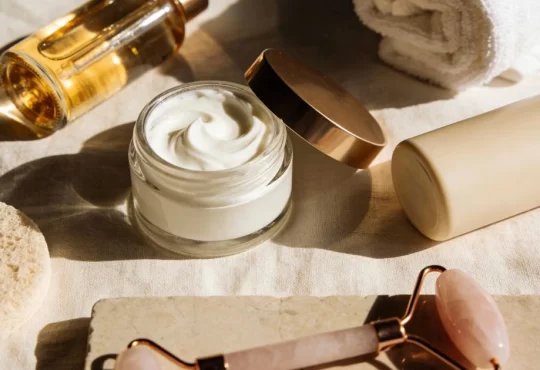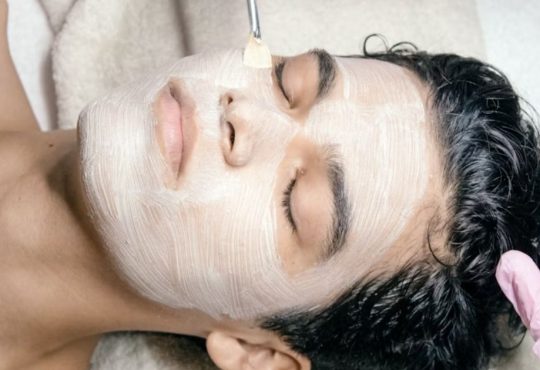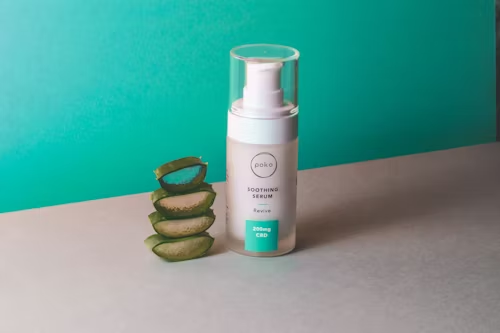
Aloe vera is one of the most popular herbal remedies for addressing topical skin conditions. Its gel-like properties, renowned for their healing capabilities, have become famous for addressing minor skin concerns. From soothing sunburns to treating minor cuts and abrasions, aloe vera has likely been a part of your skincare arsenal at some point. While you might wonder about its suitability for facial use, aloe vera offers a broad spectrum of advantages for your skin when applied correctly. Here are ten ways aloe vera can enhance your skincare routine.
Aloe Vera Benefits: 2024’s Epic Skincare Routine Enhancement
Intricacies of Aloe Vera
Aloe vera, a gel-like substance, is extracted from the resilient succulent plant known as aloe, which flourishes in arid and warm environments. This ingredient is commonly featured in various skincare formulations, including face and body gels, creams, lotions, toners, masks, and moisturizers.
In mainstream medicine, aloe vera is primarily employed as a topical gel derived from the gel-like substance found within the plant’s leaves. While extracting the gel directly from the leaves by breaking them apart is feasible, ready-to-use gel is often more convenient, particularly in emergency burns and wounds. Moreover, OTC aloe gel formulations may incorporate additional skin-soothing ingredients like echinacea and calendula for enhanced efficacy.
Regarding skincare, the aloe vera we commonly encounter in over-the-counter (OTC) gels is sourced from plants of the same name. Interestingly, many aloe species exist, with an estimated 420 different types. However, the most prevalent species utilized for skin conditions is known as aloe barbadensis Miller.
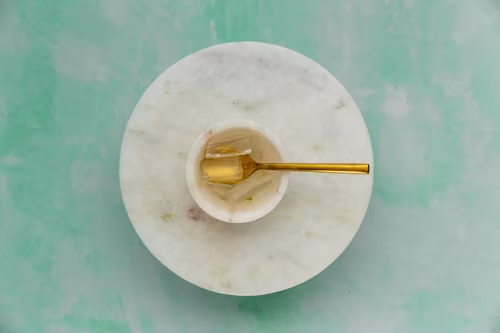
Aloe Vera Benefits for the Skin:
In minor burns, apply aloe vera gel to the affected area up to three times a day, ensuring the area is adequately protected with gauze if necessary.
Burns:
For minor burns, gently cleanse the affected area with cool water and pat it dry. Next, generously apply aloe vera gel to the burned skin, ensuring thorough coverage. Reapply the gel thrice daily to soothe discomfort and promote healing. Consider covering the area with sterile gauze or a non-stick bandage to protect it from further irritation and infection. Don’t forget to seek medical attention promptly if the burn is severe or covers a large body area.
Sunburn:
While aloe vera relieves sunburned skin, it’s essential to take preventive measures to avoid sun damage. Put an SPF 30 or higher broad-spectrum sunscreen, including on cloudy days. Don’t forget to reapply sunblock cream or spray every two hours, especially after swimming or sweating. Find shade during the peak sun hours, typically from 10 in the morning to 4 in the afternoon, and wear protective clothing such as hats and sunglasses to enhance sun protection. After sun exposure, soothe sunburned skin by applying aloe vera gel and repeating as needed for relief.
Small Abrasions:
When dealing with minor scrapes and bruises, gently cleanse the wounded area with mild soap and water to remove debris or dirt. Use a clean sheet to dry the skin by patting it gently. Next, gently apply a thin layer of aloe vera gel to the affected area. Let the gel fully absorb into the skin, and reapply up to three times daily for continued relief from pain and burning sensations. Consider covering the abrasion with a sterile bandage to keep it clean and protected during healing.
Cuts:
Wash and cleanse the wound using mild soap and water to remove dirt and bacteria for minor cuts and scrapes. Pat the area gently with a clean cloth to dry it, and apply a thin layer of smooth aloe vera gel onto the skin. Aloe vera’s natural properties help promote healing by boosting collagen production and fighting off bacteria that can lead to infection. Reapply the gel several times daily and place a sterile bandage over the cut to maintain cleanliness and protect it until it heals completely.
Dry skin:
Integrating aloe vera gel into your skincare regimen can alleviate dryness and replenish moisture in the skin. After cleansing your face, apply a small amount of aloe vera gel evenly over the skin, focusing on areas prone to dryness. The gel absorbs quickly, leaving a hydrating layer that helps lock in moisture. For added benefits, a moisturizer should be applied to lock in the hydration and maintain soft skin and supple throughout the day. Consistent application of aloe vera gel can enhance skin texture and encourage a vibrant, healthy complexion.
Frostbite:
Frostbite is a severe condition that requires prompt medical attention. If you suspect frostbite, seek medical help immediately.
Historically, aloe vera gel has been utilized as a remedy for minor skin irritations; before using it, it’s crucial to seek advice from a healthcare professional to treat frostbite. In the meantime, move to a warm environment and gently warm the affected area with lukewarm water, avoiding hot water or rubbing the skin, which can cause further damage. Wrap the area loosely in sterile gauze and seek medical care immediately.
Cold Sores:
As a result of the herpes simplex virus, it can be painful and uncomfortable. While aloe vera gel may offer relief from the symptoms of cold sores, it’s not a cure for the underlying viral infection. To alleviate discomfort, gently apply a small quantity. The calming and cooling attributes of aloe vera can relieve pain and reduce inflammation multiple times a day. Additionally, consider using over-the-counter cold sore treatments or antiviral medications to accelerate healing and lessen the duration of outbreaks.
Eczema:
This is a skin condition marked by itching, inflammation, and redness. While there is no cure, aloe vera gel can help alleviate symptoms and discomfort. Smooth a thin aloe vera gel coating onto the affected skin areas, focusing on areas prone to dryness and irritation. The moisturizing characteristics of aloe vera can effectively hydrate the skin and ease itching and inflammation. Use aloe vera gel regularly in your skincare routine to help manage eczema symptoms and maintain healthy skin.
Psoriasis:
Psoriasis is a persistent autoimmune condition marked by the emergence of red, scaly patches on the skin. While there is no cure for psoriasis, aloe vera gel can help soothe symptoms and relieve itching and inflammation. Delicately spread a thin layer of aloe vera gel to the affected areas of the skin, massaging gently to allow the gel to absorb into the skin. The hydrating attributes of aloe vera can moisturize the skin and diminish the redness and irritation associated with psoriasis. Use aloe vera gel regularly in your skincare routine to help manage psoriasis symptoms and promote healthy skin.
Inflammatory Acne:
Inflammatory acne, characterized by red, swollen pimples and cysts, can be painful and uncomfortable. Aloe vera gel possesses anti-inflammatory properties that aid in reducing redness and swelling associated with inflammatory acne. For acne treatment using aloe vera gel, apply a small quantity directly to the affected areas of the skin, massaging gently to help the gel absorb. Before applying any other skincare products, let the gel dry completely. Use aloe vera gel regularly to incorporate it into your skincare regimen to reduce inflammation and promote clearer, healthier skin.
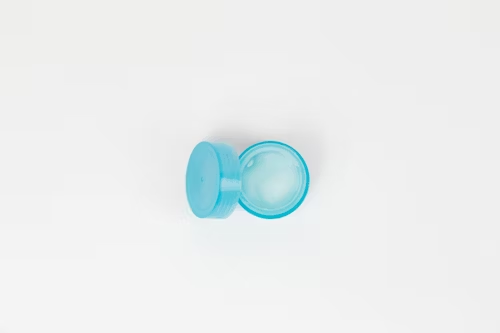
Adding Aloe Vera to Your Skincare Regimen
Adding aloe vera to your skincare regimen is a straightforward yet effective way to harness its versatile benefits. Thanks to its versatility and multiple skincare advantages, integrating aloe vera into your daily regimen is seamless. Additionally, its compatibility with both day and night use ensures consistent skincare support without compromising your skin’s sensitivity to UV rays.
Consider incorporating a facial cleanser formulated with aloe vera into your routine. This is an excellent starting point, given its lightweight consistency and pore-friendly properties, making it suitable for various skin types, including oily complexions. The mild yet efficient cleansing action of aloe vera-based cleansers ensures thorough removal of impurities without causing irritation or dryness, leaving your skin feeling refreshed and revitalized.
Furthermore, explore aloe vera-infused toners and makeup removers, which have gained popularity, particularly in regions with tropical climates. The light and refreshing sensation provided by these products offers a welcome relief from the heat and humidity, while the soothing properties of aloe vera help calm and balance the skin, preparing it for subsequent skincare steps. Moisturizers enriched with aloe vera offer additional hydration and nourishment for dry skin. Look for formulations that combine aloe vera with other hydrating ingredients like shea butter and hyaluronic acid to maximize moisturizing benefits and promote a healthy skin barrier.
Moreover, consider incorporating after-sun aloe vera skincare products into your routine, especially if you spend extended periods outdoors. Aloe vera gels and lotions are specifically designed to soothe and hydrate sun-exposed skin, providing much-needed comfort and relief while helping to minimize the effects of sun damage. By integrating these products into your skincare regimen, you can reap the numerous benefits of aloe vera while addressing specific skincare concerns and maintaining overall skin health.
The versatility of this star ingredient truly stands out – it’s not only compatible with all skin types but also harmonizes well with a diverse array of other skincare ingredients. This makes aloe vera perfect for enhancing and complementing the effects of your favorite skincare products.
Conclusion:
While aloe vera holds promise as a natural remedy for various skin conditions, the National Center for Complementary and Integrative Health cautions that conclusive evidence supporting all its claimed benefits is lacking, though it’s generally considered safe for topical application. It’s important to note that using aloe gel topically differs from applying the plant directly to your skin. If you don’t notice any improvements after using aloe vera for a few days, it’s advisable to consult your dermatologist. They can address specific concerns regarding your skin’s overall health and provide tailored recommendations.



